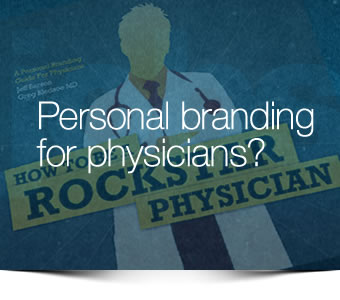
Is trust between physicians possible? Is it necessary? (The simple answer: Yes!)
Have we ever stopped to think of what this “deficit of trust” that exists in healthcare teams does to the core functioning of the healthcare providers or how it affects the key issues of patient safety, quality and the hospital’s or practice's economic health?
Simply stated, that there is a significant lack of trust in the healthcare environment is not new news. But what is new, is the understanding that trust is a critical component to both personal and organizational success – and that it underlies and affects the quality of every communication, every patient case, and every team effort.
But what is trust exactly? Well, simply put, trust means confidence. When you trust people, you have confidence in them, in their integrity and their abilities. When you distrust people, you are suspicious of them – of their integrity, their agenda, their capabilities or their track record. It is that simple. We have all had experiences that validate the difference between relationships that are built on trust and those that are not. These experiences clearly tell us the difference is not small; it is dramatic.
The Economics of Trust
One of the biggest “ah-ha’s” that come from this book is about what trust – or a lack of trust – does to any organization’s bottom-line. It is the most simple concept, and as Covey puts it:
"Here is a simple formula that will enable you to take trust from an intangible and unquantifiable variable to an indispensable factor that is both tangible and quantifiable. This formula is based on this critical insight: Trust always affects two outcomes – speed and cost:
- When trust goes DOWN, speed will also go down, and costs will go up
- When trust goes UP, speed will also go up, and costs will go down
It’s that simple, that real, that predictable."
Think about healthcare environments, organizations or teams that you’ve worked in that may have had non-existent or low trust – do any of these “typical” workings sound familiar?:
- Militant stakeholders
- Micromanagement and redundant hierarchies
- Punishing systems and structures
- Initiatives that drag
- Many unhappy employees
- Intense politics with clear camps and parties
- Excessive time wasted defending positions and decisions
- Common “CYA” (cover your ass) behaviors
What about the alternative? If any of you have had the luck to be part of healthcare organizations or groups that have a healthy- to high-trust environment, you may have experienced:
- A healthy workplace with good communication
- Aligned systems and structures
- A focus on work (not politics / rumors / grievances!)
- Effective collaboration and execution
- Positive partnering relationships
- Strong creativity and innovation
- Positive, transparent relationships
- Strong engagement, confidence and loyalty
The way Covey puts it, in organizations where trust is high, you see material improvements in things such as communication, collaboration, execution, innovation, engagement, partnering, and relationships between stakeholders.
You also see the “dividends” of increased speed, collaboration, and improved economics. This translates into improved patient safety, quality, and clinical outcomes - a win-win-win for the healthcare team, the organization, and most importantly, the patients and their families.
Trust Changes Everything
But it is not just organizations that suffer the results from a lack of trust – you personally can suffer too. Physicians are well-known for generally not trusting each other or members of the healthcare team – if this is true, or even “rings a bell” for you, I want you to think about how this might be affecting your performance and overall happiness on a daily basis. Let’s make it real – from Covey:
"Think of a person with whom you have a high-trust relationship – could be a spouse, friend, child, sibling, or colleague – and describe this relationship. What’s it like? How does it feel? How well do you communicate? How quickly can you get things done? How much do you enjoy this relationship?
… Now think of a person with whom you have a low-trust relationship – could be a colleague, boss, family member – and describe this relationship. What’s it like? How does it feel? How is the communication? Does it flow freely and quickly … or do you feel like you’re constantly walking on land-mines and being misunderstood? Do you work together to get things done quickly, or does it take a disproportionate amount of time and energy to finally reach agreement and execution? Do you enjoy this relationship… or do you find it tedious, cumbersome and draining?
The difference between a high- and low-trust relationship is palpable!
Can you imagine the difference it would make if you were able to increase the amount of trust in the most important personal and professional relationships in your life?"
Said another way, what would developing your “trust quotient” do for you, for your patients, for your team, for your career growth, and for your overall happiness?
There are excellent tools in Covey’s book for improving your own personal “trust competency” and enhancing the working relationships that affect your overall professional fulfillment. Next time I will share what some of those tools are, and how some of my physician clients have embraced them to improve their success in both the clinical and non-clinical environments.
Until then, I highly recommend you go and pick up the book - it's a great read!





 Post a Comment
Post a Comment


